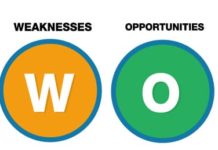The Power Nap: Optimizing Your Daytime Slumber
6 minutes: Boosting Memory
A German study revealed that a mere 6-minute nap can enhance memory retention. This short duration allows the brain to convert short-term memories into long-term ones, freeing up “space” for new knowledge.

Napping between 6 and 40 minutes offers significant benefits. (Illustrative image)
20 – 30 minutes: The Optimal Power Nap
NASA scientists discovered that a 24-minute nap can boost productivity by 34% and overall alertness by 54%. This duration also helps slow down the heart rate and promotes cardiovascular health.
Leng Yue, Assistant Professor at the University of California, San Francisco, in the Department of Psychiatry and Behavioral Sciences, advises: “It’s best to limit your nap to 15-20 minutes and before 3 pm to gain the most health benefits from a short sleep. This also ensures your nighttime sleep isn’t disrupted.”
40 minutes: Recharging Your Brain
If you had a rough night’s sleep and need an extra boost during the day, a 40-minute nap can help. This duration allows you to enter into a light sleep state, providing a refreshing break for your brain.
For naps between 40 and 45 minutes, setting an alarm is advisable. Napping beyond 45 minutes can lead to grogginess and confusion upon waking due to the “sleep inertia” effect.
Over 60 Minutes: Potential Drawbacks
According to a study published in the Journal of the Alzheimer’s Association, extended napping can have negative health implications. Notably, individuals who regularly napped for over an hour had a 40% increased risk of developing Alzheimer’s disease compared to non-nappers.
The researchers emphasized that significant increases in napping duration and frequency are particularly indicative of Alzheimer’s. Their analysis revealed a bidirectional relationship between napping and Alzheimer’s, where excessive napping may predict future Alzheimer’s, and Alzheimer’s can also result in excessive napping.
Nick Littlehales, Chairman of the Sleep Association in the UK, adds: “When you wake up from a short nap, you often feel refreshed. However, waking up from a deep sleep can leave you feeling groggy and disoriented.”
Additionally, the study found that individuals who napped for over an hour had a 1.88 times higher risk of stroke compared to non-nappers.




































